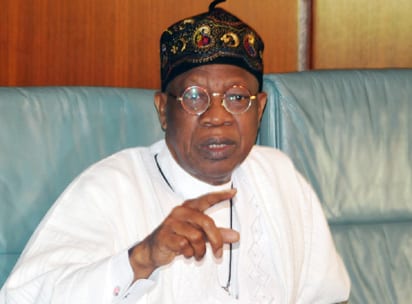A case for rebranding Nigeria’s reality – When in 2008, the then Minister of Information and Communication, Dr. Dora Akunyili launched the Rebranding Nigeria project, many Nigerians were in agreement that the country’s image needed a revamp.
The nation had gone through 8 years of civilian rule led by ex-military president turned democrat, Chief Olusegun Obasanjo.
President Umar Musa Yar’Adua had just taken over the reins of power following an election which even the sickly president admitted was flawed.
The hardworking and straight-talking Akunyili recognized that the nation was in a state of flux and uncertainly immediately took it upon herself to rebrand the nation’s image for the better.
Unlike her exploits during her stint at the National Administration for Food and Drug and Control (NAFDAC) where she put the fear of God in the heart of fake drug manufacturers, her initiative to re-engineer the nation’s image met no such success.
Everywhere she went to preach the noble ideals of this initiative, she was received with cynicism and sometimes disdain.
This project and other initiatives such as Change Begins with You launched by the current Minister of Information, Alhaji Lai Mohammed all had the same fundamental problem: none of these initiatives address the fundamental issues facing the Nigerian project and its people.
A major part of this is the lack of visionary leadership that is willing to support citizens in realizing their dreams and aspirations of a better Nigeria. Visionary and exemplary leadership is the prerequisite for national rebranding.
I once arrived a Francophone nation on the coast of West Africa a few years ago, and as I breezed through immigration formalities an officer took one look at my passport and muttered “Nigeria, bandit!”
This happened to be one of my early experiences of the direct consequences of our conduct at home and abroad on the green passport.
But it is instructive to note that despite the crime and perceived racism in the United States of America, the nation which is positioned as the bastion of democracy has consistently focused on what makes it stand out – the opportunity it presents its citizens to express themselves freely and be the best version of themselves.
China which until a few decades ago was counted among the league of developing nations has found a way to systematically open its system up to capitalism and forward-thinking ideals while maintaining the essence of its rich culture – a brilliant strategy which continues to propel its economy to dizzying heights year-on-year.
China’s Asian neighbours, India is leveraging on technology and innovation while South Africa and Kenya are making great strides on the strength of their tourism industries.
Initiatives such as that of the late amazon, Dora Akunyili will receive the support of all stakeholders when they are sure that it reflects their daily realities and future aspirations.
Nigeria must find its raison d’être, focus on it and put in place policies and structures to pursue it vigorously.
Branding professional, Charles O’Tudor gave his thoughts on the Rebranding Nigeria campaign launched by the Yar’Adua government saying: “While her initiative might be borne out of a genuine naivety, the methodology has thrown up a myriad of inquiries about our nation’s core essence.
If the process is flawed, all that follows is futility.”
“Branding cannot be conjured or invented by mere logos and sloganeering.
A brand is built through an internal processing of its brand’s DNA based on empirical research.
As a country, we need personal, corporate and institutional reformation to achieve a transformational repositioning of our national brand identity,” he added.
What this means is that there must be a painstaking, objective exercise by the nation’s leadership to distill the qualities and character of Nigeria, its nationalities and citizens with a view to amplifying what makes us great as a nation while proactively addressing its wrongs.
The project to rebrand Nigeria cannot be executed in a vacuum, neither is it an imperative that will be realized by executive orders such as the War Against Indiscipline waged by then General Muhammadu Buhari in the 80s and others before and after him.
“The internal process is what automatically reflects in the external processes.
A good case in point, an ophthalmologist does not go ahead to recommend corrective lens for a patient with an eye defect, without first finding the nature of defect; say is it myopia, hypermetropia or astigmatism?
It is based on such findings that he recommends appropriately. Everything outside this process is blind therapy,” O’Tudor explains.
Regardless of the general notion that the Rebranding Nigeria initiative was dead on arrival, the main fulcrum of the project holds merit and must not be lost.
Akunyili’s crusade did not start and end with logos and taglines or hashtags, it was predicated upon the notion of telling the Nigerian story.
“If nothing is done, the image we have as a country of 419-ers, where nothing works, failing leadership – it becomes a liability.
The most systematic way is to re-brand, to tell our story and prevent others from telling it the way they want to tell it,” Akunyili rightly noted.































